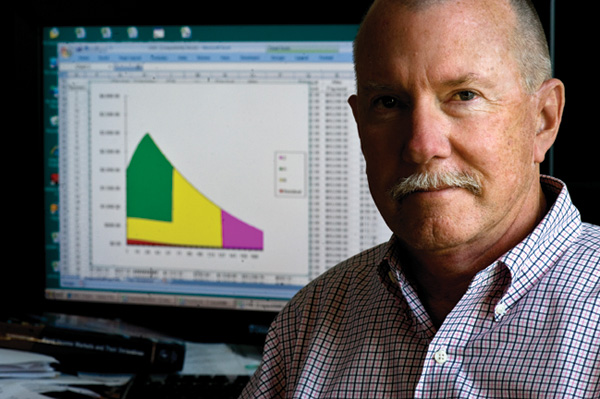
Paul Spindt, Keehn Berry Chair in Banking and Finance, says new federal rules for the banking industry may not be strict enough.
New federal rules to rein in the banking industry may be causing a stir on Wall Street, but the regulations likely won’t go far enough to prevent a crisis like the 2007–2008 financial meltdown, says the Freeman School’s Paul Spindt.
Last fall, regulators released how they plan to implement the controversial Volcker Rule, a provision that prevents large banking institutions from engaging in speculative investments, known as proprietary trading. The new 298-page rule spells out exactly what banks can and can’t do with their investments and attempts to ensure that they aren’t trading against the interests of their customers.
“We need something like the Volcker Rule to limit the risk-taking of large national banks who are custodians of insured deposits,” says Spindt, senior associate dean and Keehn Berry Chair in Banking and Finance. “But it’s not clear that the bill that passed Congress is going to be effective in accomplishing this since it was written by the banking lobby.”
Spindt points to several loopholes that banks have pushed into the legislation. For example, it still allows currency trading — a highly volatile market, he says.
“I would prefer to see a stronger regulatory fence put around activities available to commercial banks,” Spindt says, referring to reforms enacted in the 1930s that separated commercial and investment banks. “But there is no appetite now for the government to insert itself in that kind of direct way.”
The rule would have an impact on business students who end up working on Wall Street. It’s discussed in classes about the broader challenges of regulating financial markets. With each new regulation, an incentive is created to innovate around the rules. “Markets are pretty clever at inventing ways to trade risks as long as people are willing to take them,” Spindt says.

